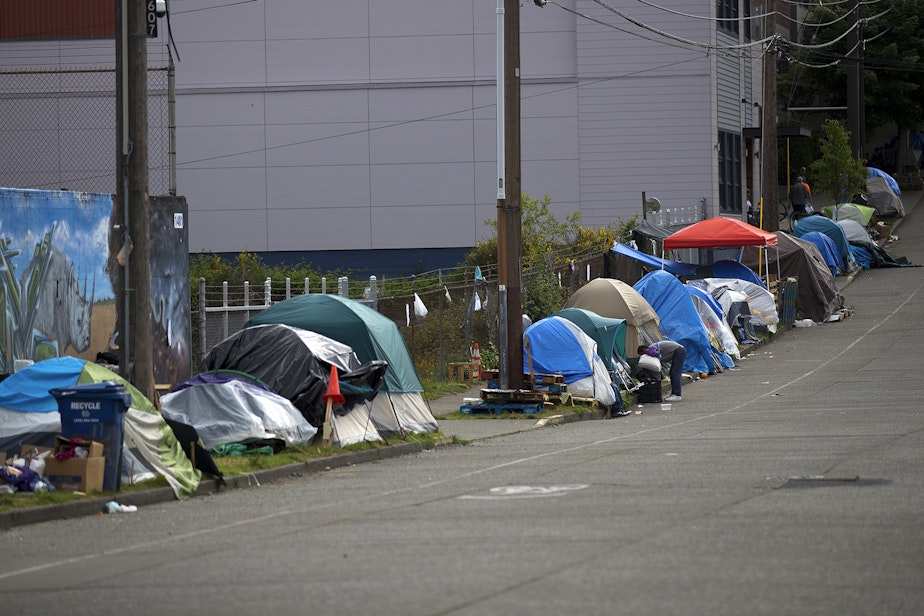Program pledging to get every unsheltered person off downtown Seattle’s streets comes to an end

In February of 2022, the King County Regional Homelessness Authority announced an ambitious program promising to reduce unsheltered homelessness in downtown Seattle to zero — potentially within a year.
But 19 months later, the organization announced the end of Partnership for Zero, after only meeting a fraction of its goal.
The effort began as a way to connect public institutions and private donors. Together, they would fund a program that would effectively end unsheltered homelessness downtown.
"The idea was that this is going to be a sort of innovative approach that would use people with lived experience of homelessness, called systems advocates,” explained Publicola publisher Erica Barnett, who reported on the program.
Barnett said those advocates would then be assigned a client, acting as their case manager through the process of getting housing. To find that housing, the King County Regional Homelessness Authority would work with private landlords, who would be given a voucher — typically for a one year lease.
Sponsored
The organization created a list of around 1,000 people living outside between South Lake Union and the Chinatown-International District. The goal, Barnett said, was to get all of those people into housing, then maintain a system where no more than 30 people would be unhoused in downtown Seattle at one time.
Ultimately, the program fell short of its goal, only housing 230 people. The issue, Barnett said, was that people who are unsheltered don't just stay in one place.
"If you are downtown one day, or you're downtown for a couple of weeks, you're not necessarily in the same area."
Partnership for Zero also faced funding issues.
The program’s main funder, an umbrella group called We Are In, announced it was backing out. Barnett said the King County Regional Homelessness Authority hoped to rely on federal funding going forward, through a Medicaid program. But the money never materialized.
Sponsored
Barnett said the program did set up a housing command center downtown, which took an emergency response approach to homelessness.
"If you have a major weather event, the city has an emergency operation center," she explained. "And so that was the approach that they took to this downtown project."
The program hired a total of 36 "system advocates,” people with lived experience of homelessness to help clients, Barnett said. Now those people are out of a job. Barnett reported hearing that the job itself was really hard, and workers often felt unsupported.
"There was not a lot of training, there was not a lot of sort of taking care of people's mental health," she said. Barnett added that the system advocates were often asked to work during strange hours, or in places that didn't feel safe.
"People who had been very recently using drugs and were trying to stay sober would be sent into places where people were using drugs, without necessarily adequate training on how to cope with that."
Sponsored
Meanwhile, the King County Regional Homelessness Authority has said its hiring for 11 new positions is encouraging internal applications.
For the approximately 200 people who were given housing, the future looks unclear.
Many have 12-month leases through Partnership for Zero's voucher program. What happens after those leases run out for people who can't afford to pay rent on their own is still unknown.


